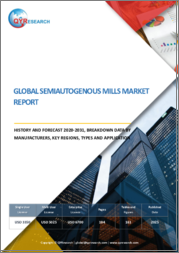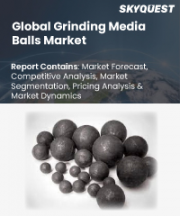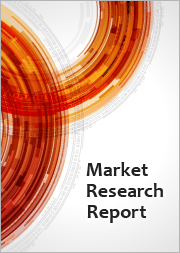
|
시장보고서
상품코드
1713279
SAG 밀 시장 : 분석 및 예측(2020-2031년)Global Semiautogenous Mills Market Report, History and Forecast 2020-2031 |
||||||
전 세계 SAG 밀 시장 규모는 2024년에 3억 3,069만 달러이며 2031년에는 4억 1,549만 달러에 달할 것으로 예상되며, 예측 기간인 2025-2031년 동안 2.95%의 CAGR로 성장할 것으로 예상됩니다.
세계의 SAG 밀 시장에 대해 조사 분석했으며, 각 지역별 시장 규모와 예측, 경쟁 상황, 주요 기업 개요, 기술 동향, 신제품 개발 등의 정보를 전해드립니다.
목차
제1장 SAG 밀 시장 개요
- SAG 밀 제품 개요
- SAG 밀 시장 : 유형별
- 습식 SAG 밀
- 건식 SAG 밀
- 세계의 SAG 밀 시장 규모 : 유형별
- 세계의 SAG 밀 시장 규모 개요 : 유형별(2020-2031년)
- 세계의 SAG 밀 시장 규모 실적 : 유형별(2020-2025년)
- 세계의 SAG 밀 시장 규모 예측 : 유형별(2026-2031년)
- 주요 지역의 시장 규모 : 유형별
- 북미의 SAG 밀 판매량 내역 : 유형별(2020-2031년)
- 유럽의 SAG 밀 판매량 내역 : 유형별(2020-2031년)
- 아시아태평양의 SAG 밀 판매량 내역 : 유형별(2020-2031년)
- 라틴아메리카의 SAG 밀 판매량 내역 : 유형별(2020-2031년)
- 중동 및 아프리카의 SAG 밀 판매량 내역 : 유형별(2020-2031년)
제2장 SAG 밀 시장 각사의 경쟁
- 세계의 주요 기업 : SAG 밀 판매량별(2020-2025년)
- 세계의 주요 기업 : SAG 밀 수익별(2020-2025년)
- 세계의 주요 기업 : SAG 밀 가격별(2020-2025년)
- 세계 주요 제조업체의 SAG 밀 제조 거점과 본사
- SAG 밀 시장 경쟁 구도와 동향
- SAG 밀 시장 집중도(2020-2025년)
- 세계의 SAG 밀 판매량과 매출 3대 제조업체(2024년)
- 세계의 주요 제조업체 : 기업 유형별(Tier 1·Tier 2·Tier 3)(2024년 시점 SAG 밀 매출 기준)
- 인수합병, 확대
제3장 SAG 밀 현황과 전망 : 지역별
- 세계의 SAG 밀 시장 규모와 CAGR : 지역별(2020년·2024년·2031년)
- 세계의 SAG 밀 시장 규모 실적 : 지역별
- 세계의 SAG 밀 판매량 : 지역별(2020-2025년)
- 세계의 SAG 밀 판매액 : 지역별(2020-2025년)
- 세계의 SAG 밀 시장 규모 예측 : 지역별
- 세계의 SAG 밀 판매량 : 지역별(2026-2031년)
- 세계의 SAG 밀 판매액 : 지역별(2026-2031년)
제4장 SAG 밀 : 용도별
- SAG 밀 시장 : 용도별
- 채굴 용도
- 산업 용도
- 세계의 SAG 밀 시장 규모 : 용도별
- 세계의 SAG 밀 시장 규모 개요 : 용도별(2020-2031년)
- 세계의 SAG 밀 시장 규모 실적 : 용도별(2020-2025년)
- 세계의 SAG 밀 시장 규모 예측 : 용도별(2026-2031년)
- 주요 지역의 시장 규모 : 용도별
- 북미의 SAG 밀 판매량 내역 : 용도별(2020-2025년)
- 유럽의 SAG 밀 판매량 내역 : 용도별(2020-2025년)
- 아시아태평양의 SAG 밀 판매량 내역 : 용도별(2020-2025년)
- 라틴아메리카의 SAG 밀 판매량 내역 : 용도별(2020-2025년)
- 중동 및 아프리카의 SAG 밀 판매량 내역 : 용도별(2020-2025년)
제5장 북미의 SAG 밀 : 국가별
- 북미의 SAG 밀 시장 규모 실적 : 국가별
- 북미의 SAG 밀 시장 규모 예측 : 국가별
제6장 유럽의 SAG 밀 : 국가별
- 유럽의 SAG 밀 시장 규모 실적 : 국가별
- 유럽의 SAG 밀 시장 규모 예측 : 국가별
제7장 아시아태평양의 SAG 밀 : 국가별
- 아시아태평양의 SAG 밀 시장 규모 실적 : 국가별
- 아시아태평양의 SAG 밀 시장 규모 예측 : 국가별
제8장 라틴아메리카의 SAG 밀 : 국가별
- 라틴아메리카의 SAG 밀 시장 규모 실적 : 국가별
- 라틴아메리카의 SAG 밀 시장 규모 예측 : 국가별
제9장 중동 및 아프리카의 SAG 밀 : 국가별
- 중동 및 아프리카의 SAG 밀 시장 규모 실적 : 국가별
- 중동 및 아프리카의 SAG 밀 시장 규모 예측 : 국가별
제10장 기업 개요
- Metso
- FLSmidth
- CITIC Heavy Industries
- Northern Heavy Industries Group
제11장 업스트림, 기회, 과제, 리스크, 영향요인 분석
- SAG 밀의 주요 원재료
- 주요 원재료
- 원재료의 주요 공급업체
- 제조 비용 구조
- 원재료
- 인건비
- 제조비
- SAG 밀 산업 체인 분석
- SAG 밀 시장 역학
- SAG 밀 산업 동향
- SAG 밀 시장 촉진요인
- SAG 밀 시장 과제
- SAG 밀 시장 억제요인
제12장 마케팅 전략 분석, 판매업체
- 판매 채널
- SAG 밀 다운스트림 고객
제13장 조사 결과와 결론
제14장 부록
ksm 25.05.14The global market for Semiautogenous Mills was US$ 330.69 million in the year 2024, is projected to reach a revised size of US$ 415.49 million by 2031, growing at a CAGR of 2.95% during the forecast period 2025-2031.
Report Scope
This report aims to provide a comprehensive presentation of the global market for Semiautogenous Mills, with both quantitative and qualitative analysis, to help readers develop business/growth strategies, assess the market competitive situation, analyze their position in the current marketplace, and make informed business decisions regarding Semiautogenous Mills.
The Semiautogenous Mills market size, estimations, and forecasts are provided in terms of sales volume (units) and revenue ($ millions), considering 2024 as the base year, with history and forecast data for the period from 2020 to 2031. This report segments the global Semiautogenous Mills market comprehensively. Regional market sizes, concerning products by Type, by Application, and by players, are also provided.
For a more in-depth understanding of the market, the report provides profiles of the competitive landscape, key competitors, and their respective market ranks. The report also discusses technological trends and new product developments.
This report will help the readers to understand the competition within the industries and strategies for the competitive environment to enhance the potential profit. The report also focuses on the competitive landscape of the global Semiautogenous Mills market, and introduces in detail the market share, industry ranking, competitor ecosystem, market performance, new product development, operation situation, expansion, and acquisition. etc. of the main players, which helps the readers to identify the main competitors and deeply understand the competition pattern of the market.
Market Segmentation
This report covers the Semiautogenous Mills segments by manufacturers, by Type, by Application, by region and country, and provides market size (value, volume and average price) and CAGR for the history and forecast period (2020-2024, 2025-2031), considering 2024 as the base year. It elucidates potential revenue opportunities across different segments and explains attractive investment proposition matrices for this market.
By Company
- Metso
- FLSmidth
- CITIC Heavy Industries
- Northern Heavy Industries Group
Segment by Type
- Dry Semiautogenous Mills
- Wet Semiautogenous Mills
Segment by Application
- Mining Application
- Industrial Application
By Region
- North America
- United States
- Canada
- Asia-Pacific
- China
- Australia
- Central Asia
- Southeast Asia
- Others
- Europe
- Eastern Europe
- Western Europe
- Russia
- Others
- Latin America
- Brazil
- Chile
- Others
- Middle East & Africa
- Middle East
- Africa
Chapter Outline
Chapter One: Introduces the study scope of this report, executive summary of market segments by Type, market size segments for North America, Europe, Asia Pacific, Latin America, Middle East & Africa.
Chapter Two: Detailed analysis of Semiautogenous Mills manufacturers competitive landscape, price, sales, revenue, market share and ranking, latest development plan, merger, and acquisition information, etc.
Chapter Three: Sales, revenue of Semiautogenous Mills in regional level. It provides a quantitative analysis of the market size and development potential of each region and introduces the future development prospects, and market space in the world.
Chapter Four: Introduces market segments by Application, market size segment for North America, Europe, Asia Pacific, Latin America, Middle East & Africa.
Chapter Five, Six, Seven, Eight and Nine: North America, Europe, Asia Pacific, Latin America, Middle East & Africa, sales and revenue by country.
Chapter Ten: Provides profiles of key players, introducing the basic situation of the main companies in the market in detail, including product sales, revenue, price, gross margin, product introduction, etc.
Chapter Eleven: Analysis of industrial chain, key raw materials, manufacturing cost, and market dynamics. This chapter introduces the market dynamics, latest developments of the market, the driving factors and restrictive factors of the market, the challenges and risks faced by manufacturers in the industry, and the analysis of relevant policies in the industry.
Chapter Twelve: Analysis of sales channel, distributors and customers.
Chapter Thirteen: Research Findings and Conclusion.
Table of Contents
1 Semiautogenous Mills Market Overview
- 1.1 Semiautogenous Mills Product Overview
- 1.2 Semiautogenous Mills Market by Type
- 1.2.1 Wet Semiautogenous Mills
- 1.2.2 Dry Semiautogenous Mills
- 1.3 Global Semiautogenous Mills Market Size by Type
- 1.3.1 Global Semiautogenous Mills Market Size Overview by Type (2020-2031)
- 1.3.2 Global Semiautogenous Mills Historic Market Size Review by Type (2020-2025)
- 1.3.3 Global Semiautogenous Mills Forecasted Market Size by Type (2026-2031)
- 1.4 Key Regions Market Size by Type
- 1.4.1 North America Semiautogenous Mills Sales Breakdown by Type (2020-2031)
- 1.4.2 Europe Semiautogenous Mills Sales Breakdown by Type (2020-2031)
- 1.4.3 Asia-Pacific Semiautogenous Mills Sales Breakdown by Type (2020-2031)
- 1.4.4 Latin America Semiautogenous Mills Sales Breakdown by Type (2020-2031)
- 1.4.5 Middle East and Africa Semiautogenous Mills Sales Breakdown by Type (2020-2031)
2 Semiautogenous Mills Market Competition by Company
- 2.1 Global Top Players by Semiautogenous Mills Sales (2020-2025)
- 2.2 Global Top Players by Semiautogenous Mills Revenue (2020-2025)
- 2.3 Global Top Players by Semiautogenous Mills Price (2020-2025)
- 2.4 Global Top Manufacturers Semiautogenous Mills Manufacturing Base Distribution and Headquarters
- 2.5 Semiautogenous Mills Market Competitive Situation and Trends
- 2.5.1 Semiautogenous Mills Market Concentration Rate (2020-2025)
- 2.5.2 Global 3 Largest Manufacturers by Semiautogenous Mills Sales and Revenue in 2024
- 2.6 Global Top Manufacturers by Company Type (Tier 1, Tier 2, and Tier 3) & (based on the Revenue in Semiautogenous Mills as of 2024)
- 2.7 Mergers & Acquisitions, Expansion
3 Semiautogenous Mills Status and Outlook by Region
- 3.1 Global Semiautogenous Mills Market Size and CAGR by Region: 2020 VS 2024 VS 2031
- 3.2 Global Semiautogenous Mills Historic Market Size by Region
- 3.2.1 Global Semiautogenous Mills Sales in Volume by Region (2020-2025)
- 3.2.2 Global Semiautogenous Mills Sales in Value by Region (2020-2025)
- 3.3 Global Semiautogenous Mills Forecasted Market Size by Region
- 3.3.1 Global Semiautogenous Mills Sales in Volume by Region (2026-2031)
- 3.3.2 Global Semiautogenous Mills Sales in Value by Region (2026-2031)
4 Semiautogenous Mills by Application
- 4.1 Semiautogenous Mills Market by Application
- 4.1.1 Mining Application
- 4.1.2 Industrial Application
- 4.2 Global Semiautogenous Mills Market Size by Application
- 4.2.1 Global Semiautogenous Mills Market Size Overview by Application (2020-2031)
- 4.2.2 Global Semiautogenous Mills Historic Market Size Review by Application (2020-2025)
- 4.2.3 Global Semiautogenous Mills Forecasted Market Size by Application (2026-2031)
- 4.3 Key Regions Market Size by Application
- 4.3.1 North America Semiautogenous Mills Sales Breakdown by Application (2020-2025)
- 4.3.2 Europe Semiautogenous Mills Sales Breakdown by Application (2020-2025)
- 4.3.3 Asia-Pacific Semiautogenous Mills Sales Breakdown by Application (2020-2025)
- 4.3.4 Latin America Semiautogenous Mills Sales Breakdown by Application (2020-2025)
- 4.3.5 Middle East and Africa Semiautogenous Mills Sales Breakdown by Application (2020-2025)
5 North America Semiautogenous Mills by Country
- 5.1 North America Semiautogenous Mills Historic Market Size by Country
- 5.1.1 North America Semiautogenous Mills Market Size Growth Rate (CAGR) by Country: 2020 VS 2024 VS 2031
- 5.1.2 North America Semiautogenous Mills Sales in Volume by Country (2020-2025)
- 5.1.3 North America Semiautogenous Mills Sales in Value by Country (2020-2025)
- 5.2 North America Semiautogenous Mills Forecasted Market Size by Country
- 5.2.1 North America Semiautogenous Mills Sales in Volume by Country (2026-2031)
- 5.2.2 North America Semiautogenous Mills Sales in Value by Country (2026-2031)
6 Europe Semiautogenous Mills by Country
- 6.1 Europe Semiautogenous Mills Historic Market Size by Country
- 6.1.1 Europe Semiautogenous Mills Market Size Growth Rate (CAGR) by Country: 2020 VS 2024 VS 2031
- 6.1.2 Europe Semiautogenous Mills Sales in Volume by Country (2020-2025)
- 6.1.3 Europe Semiautogenous Mills Sales in Value by Country (2020-2025)
- 6.2 Europe Semiautogenous Mills Forecasted Market Size by Country
- 6.2.1 Europe Semiautogenous Mills Sales in Volume by Country (2026-2031)
- 6.2.2 Europe Semiautogenous Mills Sales in Value by Country (2026-2031)
7 Asia-Pacific Semiautogenous Mills by Country
- 7.1 Asia-Pacific Semiautogenous Mills Historic Market Size by Country
- 7.1.1 Asia-Pacific Semiautogenous Mills Market Size Growth Rate (CAGR) by Country: 2020 VS 2024 VS 2031
- 7.1.2 Asia-Pacific Semiautogenous Mills Sales in Volume by Country (2020-2025)
- 7.1.3 Asia-Pacific Semiautogenous Mills Sales in Value by Country (2020-2025)
- 7.2 Asia-Pacific Semiautogenous Mills Forecasted Market Size by Country
- 7.2.1 Asia-Pacific Semiautogenous Mills Sales in Volume by Country (2026-2031)
- 7.2.2 Asia-Pacific Semiautogenous Mills Sales in Value by Country (2026-2031)
8 Latin America Semiautogenous Mills by Country
- 8.1 Latin America Semiautogenous Mills Historic Market Size by Country
- 8.1.1 Latin America Semiautogenous Mills Market Size Growth Rate (CAGR) by Country: 2020 VS 2024 VS 2031
- 8.1.2 Latin America Semiautogenous Mills Sales in Volume by Country (2020-2025)
- 8.1.3 Latin America Semiautogenous Mills Sales in Value by Country (2020-2025)
- 8.2 Latin America Semiautogenous Mills Forecasted Market Size by Country
- 8.2.1 Latin America Semiautogenous Mills Sales in Volume by Country (2026-2031)
- 8.2.2 Latin America Semiautogenous Mills Sales in Value by Country (2026-2031)
9 Middle East and Africa Semiautogenous Mills by Country
- 9.1 Middle East and Africa Semiautogenous Mills Historic Market Size by Country
- 9.1.1 Middle East and Africa Semiautogenous Mills Market Size Growth Rate (CAGR) by Country: 2020 VS 2024 VS 2031
- 9.1.2 Middle East and Africa Semiautogenous Mills Sales in Volume by Country (2020-2025)
- 9.1.3 Middle East and Africa Semiautogenous Mills Sales in Value by Country (2020-2025)
- 9.2 Middle East and Africa Semiautogenous Mills Forecasted Market Size by Country
- 9.2.1 Middle East and Africa Semiautogenous Mills Sales in Volume by Country (2026-2031)
- 9.2.2 Middle East and Africa Semiautogenous Mills Sales in Value by Country (2026-2031)
10 Company Profiles
- 10.1 Metso
- 10.1.1 Metso Company Information
- 10.1.2 Metso Introduction and Business Overview
- 10.1.3 Metso Semiautogenous Mills Sales, Revenue and Gross Margin (2020-2025)
- 10.1.4 Metso Semiautogenous Mills Products Offered
- 10.2 FLSmidth
- 10.2.1 FLSmidth Company Information
- 10.2.2 FLSmidth Introduction and Business Overview
- 10.2.3 FLSmidth Semiautogenous Mills Sales, Revenue and Gross Margin (2020-2025)
- 10.2.4 FLSmidth Semiautogenous Mills Products Offered
- 10.3 CITIC Heavy Industries
- 10.3.1 CITIC Heavy Industries Company Information
- 10.3.2 CITIC Heavy Industries Introduction and Business Overview
- 10.3.3 CITIC Heavy Industries Semiautogenous Mills Sales, Revenue and Gross Margin (2020-2025)
- 10.3.4 CITIC Heavy Industries Semiautogenous Mills Products Offered
- 10.4 Northern Heavy Industries Group
- 10.4.1 Northern Heavy Industries Group Company Information
- 10.4.2 Northern Heavy Industries Group Introduction and Business Overview
- 10.4.3 Northern Heavy Industries Group Semiautogenous Mills Sales, Revenue and Gross Margin (2020-2025)
- 10.4.4 Northern Heavy Industries Group Semiautogenous Mills Products Offered
11 Upstream, Opportunities, Challenges, Risks and Influences Factors Analysis
- 11.1 Semiautogenous Mills Key Raw Materials
- 11.1.1 Key Raw Materials
- 11.1.2 Raw Materials Key Suppliers
- 11.2 Manufacturing Cost Structure
- 11.2.1 Raw Materials
- 11.2.2 Labor Cost
- 11.2.3 Manufacturing Expenses
- 11.3 Semiautogenous Mills Industrial Chain Analysis
- 11.4 Semiautogenous Mills Market Dynamics
- 11.4.1 Semiautogenous Mills Industry Trends
- 11.4.2 Semiautogenous Mills Market Drivers
- 11.4.3 Semiautogenous Mills Market Challenges
- 11.4.4 Semiautogenous Mills Market Restraints
12 Marketing Strategy Analysis, Distributors
- 12.1 Sales Channel
- 12.2 Semiautogenous Mills Downstream Customers
13 Research Findings and Conclusion
14 Appendix
- 14.1 Research Methodology
- 14.1.1 Methodology/Research Approach
- 14.1.2 Data Source
- 14.2 Author Details
- 14.3 Disclaimer 88
















